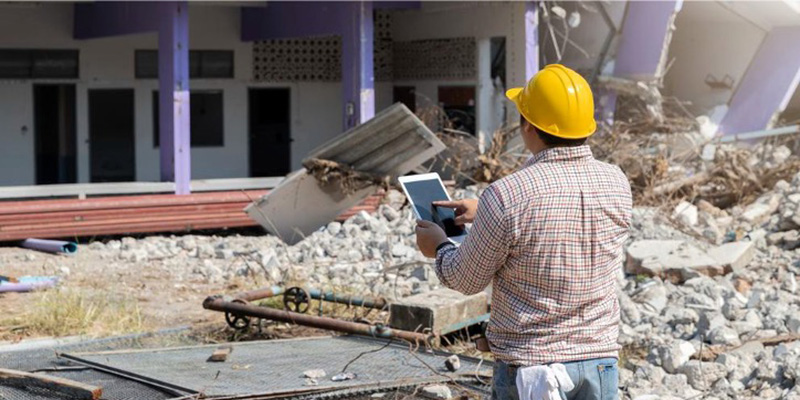
Although modern commercial insurance policies offer extensive coverage, they always include certain exclusions that are not covered by the policy. However, this doesn’t mean you can’t get coverage for those risks. In most cases, you can secure protection through a separate policy specifically tailored to address that particular risk.
Now, let’s explore some of the typical exclusions:
Wear and Tear
Most commercial property policies do not cover losses that could have been prevented or minimized with proper maintenance. The purpose of an insurance policy is not to cover failures in maintenance. Instead, it is designed to provide coverage for unexpected events, such as a fire, electrical surge, or vandalism.
Acts of God and Governmental Action
Commercial policies typically exclude major events like floods, earthquakes, wars, and military actions. Most insurers also exclude coverage for pandemics and government-mandated shutdowns intended to prevent their spread.
If you live in an area prone to floods or earthquakes, you can purchase a separate policy or an endorsement (policy addition) to cover these risks.
Contractual Liability
As a business owner, you’re likely to sign various contracts, such as sales agreements and lease contracts. In most cases, insurers prefer not to be involved in matters related to contractual obligations or breaches of contract. However, insurers do make some exceptions to these exclusions.
For instance, if some shingles you provide are found to be defective, you might be able to find coverage. Your policy will specify the types of contracts it covers, such as railroad sidetrack agreements and tort liability you assume for bodily injury or property damage.
Costs to Rebuild to New Building Codes
Your commercial property policy likely includes a clause stating that it will not cover upgrades to damaged parts of your structure that are required to meet new building codes. This means that if you need to demolish or rebuild to meet new building codes, you’ll have to pay for the costs yourself unless you add coverage known as “ordinance or law insurance.” This affordable coverage can help protect you from significant expenses in the event of a major property loss.
Violations of the Law
Insurers will not cover losses resulting from illegal activities. If your business is found to have engaged in criminal conduct that caused financial loss, any claims related to that loss will likely be denied. Additionally, intentional and fraudulent acts are also excluded from coverage.
Professional Liability
If you’re a licensed or board-certified professional, like a doctor, lawyer, or architect, your commercial general liability insurance will not cover any damage caused by professional errors or omissions. To protect against these risks, you’ll need to purchase professional liability insurance (also known as malpractice insurance).
Pollution
In the late 1970s and early 1980s, pollution lawsuits and regulations began to emerge across the United States, leading to the creation of laws that held parties liable for environmental damage. To protect themselves from the risk of massive losses, insurers introduced exclusions for environmental contamination under commercial general liability insurance. The insurance industry now provides separate pollution (or “environmental liability”) policies and endorsements to cover these risks.
Product Liability
Commercial general liability insurance typically does not cover injuries or harm resulting from defects in the products you produce or sell. To protect against these risks, you can purchase product liability insurance.
Cyberattacks
In today’s connected world, most businesses depend on the internet. If your cybersecurity measures fail and your systems are breached by a cyberattack, you could face losses of property and income or even be held responsible for financial damage to others.
Basic commercial insurance does not cover property and liability risks from cyber intrusions. To protect against financial loss from these threats, you need both first-party and third-party cyber insurance. First-party cyber insurance covers damage, losses, or system lockdowns affecting your own systems. Third-party cyber liability insurance protects you against harm caused to others if you fail to secure your networks.
Getting Coverage for Excluded Risks
Every insurance policy has exclusions, but you can often find coverage that either already exists or can be tailored to address specific exclusions in your policy.
Contact Clyde Paul today to discuss your policy and help identify any gaps in your commercial insurance coverage!
This content is for informational purposes only and not for the purpose of providing professional, financial, medical or legal advice. You should contact your licensed professional to obtain advice with respect to any particular issue or problem.
